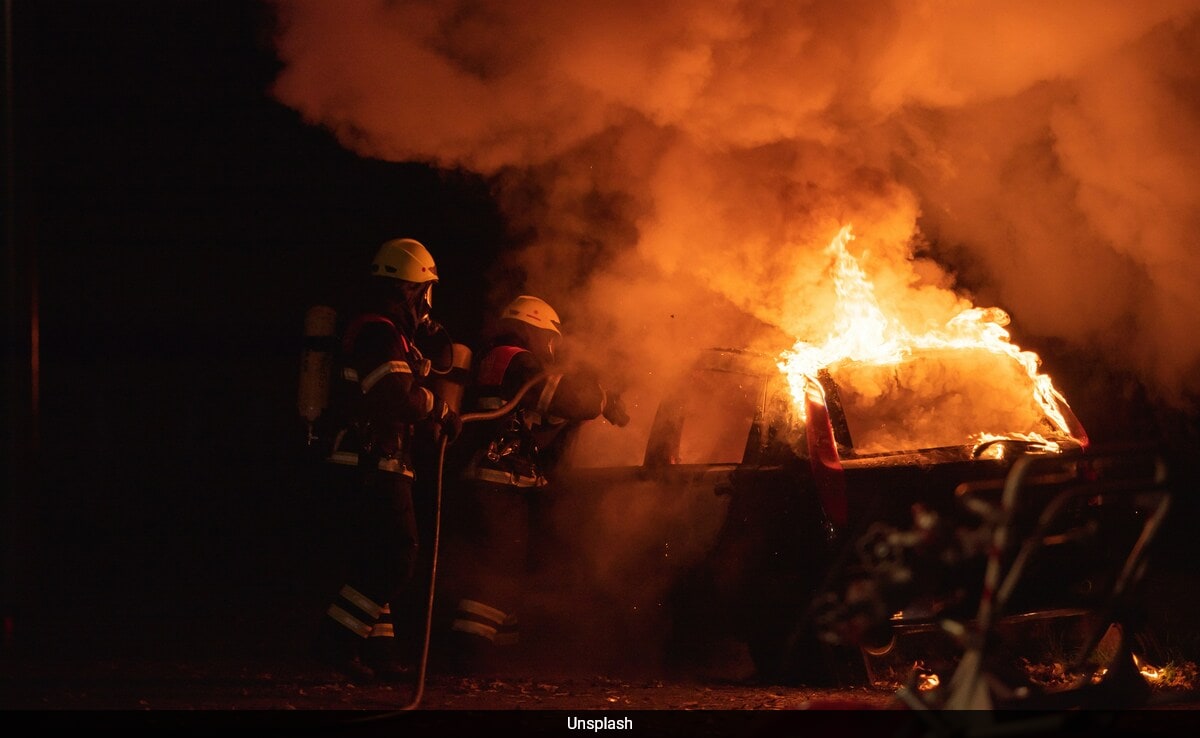Scientists Warn Of Climate Threat To Chocolate

Join our WhatsApp Community to receive travel deals, free stays, and special offers!
- Join Now -
Join our WhatsApp Community to receive travel deals, free stays, and special offers!
- Join Now -
Climate change drove weeks of crop-withering temperatures last year in the West African countries that underpin the world's chocolate supply, hitting harvests and likely further stoking record prices, researchers said Wednesday.
Farmers in the region -- which account for some 70 percent of global cacao production -- have struggled with heat, disease and unusual rainfall in recent years, which have all contributed to falling production.
That has caused an explosion in the price of cocoa, which is produced from the beans of the cacao tree, and is the main ingredient in chocolate.
A new report found that "climate change, due primarily to burning oil, coal, and methane gas, is causing hotter temperatures to become more frequent" in Ivory Coast, Ghana, Cameroon and Nigeria.
The study, by the independent research group Climate Central, found the trend was particularly marked in Ivory Coast and Ghana, the two biggest cacao producers.
Using observational data from 44 cacao-producing areas in West Africa and computer models, the researchers compared today's temperatures with a counterfactual of a world without the effects of climate change.
They looked at the likelihood of these regions facing temperatures in excess of 32 degrees Celsius (89.6 Fahrenheit) -- above levels considered optimum for cacao trees.
The report calculated that over the last decade, climate change had added an extra three weeks of above 32C heat in Ivory Coast and Ghana during the main growing season between October and March.
Last year, the hottest year globally on record, they found that climate change drove temperatures above 32C on at least 42 days across two thirds of the areas analysed.
Researchers said that "excessive heat can contribute to a reduction in the quantity and quality of the harvest".
Many other factors were also potentially harming cacao trees and boosting prices, they noted, including mealybug infestations, rainfall patterns, smuggling and illegal mining.
Christian Aid published separate research on Wednesday on the vulnerability of chocolate and cacao farmers to weather changes and extremes driven by global warming.
The UK charity said conditions in West Africa have whiplashed from extreme rainfall and spoiled crops during the dry season in 2023 to drought in 2024.
"Growing cocoa is a vital livelihood for many of the poorest people around the world and human caused climate change is putting that under serious threat," said Osai Ojigho, director of Christian Aid's policy and public campaigns.
'Existential threat'
Failed harvests helped drive a meteoric rise in cocoa prices since late 2023 on the London and New York markets where this commodity is traded.
New York cocoa prices were above $10,000 a tonne on Wednesday, below a peak of over $12,500 in mid-December.
New York prices have largely hovered between $2,000 and $3,000 a tonne for decades.
In January, Swiss chocolate maker Lindt & Spruengli said it would raise prices again this year to offset rising cocoa costs.
Narcisa Pricope, a professor at Mississippi State University, said the crop faces an "existential threat" largely because of increasingly dry conditions in cacao-producing regions.
Pricope was part of recent research from the United Nations Convention to Combat Desertification that found more than three-quarters of the Earth's landmass has become drier over the past 30 years.
The emissions of planet-heating greenhouse gases are the biggest driver of this aridity, she said in a commentary on the Conversation on Monday, but practices that degrade soils and nature also play an important role.
"Collective action against aridity isn't just about saving chocolate -- it's about preserving the planet's capacity to sustain life," she said.
(Except for the headline, this story has not been edited by NDTV staff and is published from a syndicated feed.)
What's Your Reaction?
 Like
0
Like
0
 Dislike
0
Dislike
0
 Love
0
Love
0
 Funny
0
Funny
0
 Angry
0
Angry
0
 Sad
0
Sad
0
 Wow
0
Wow
0








































![Today's hottest deals - Kinsley Iron Blue Desk Pot at just Rs.49 [MRP ₹299]](https://savefree.in/uploads/images/202504/image_870x580_680c89dae6fdb.webp?#)















